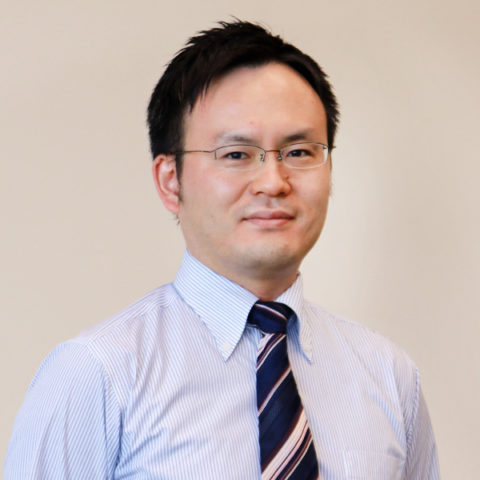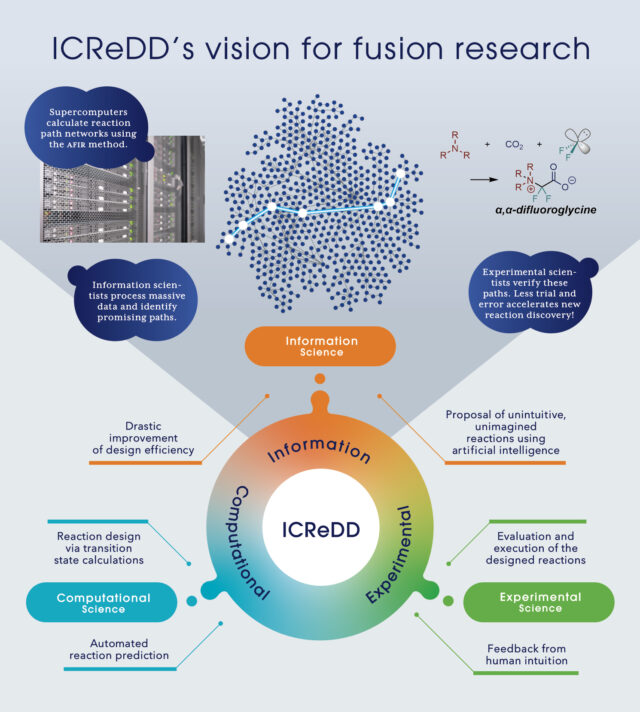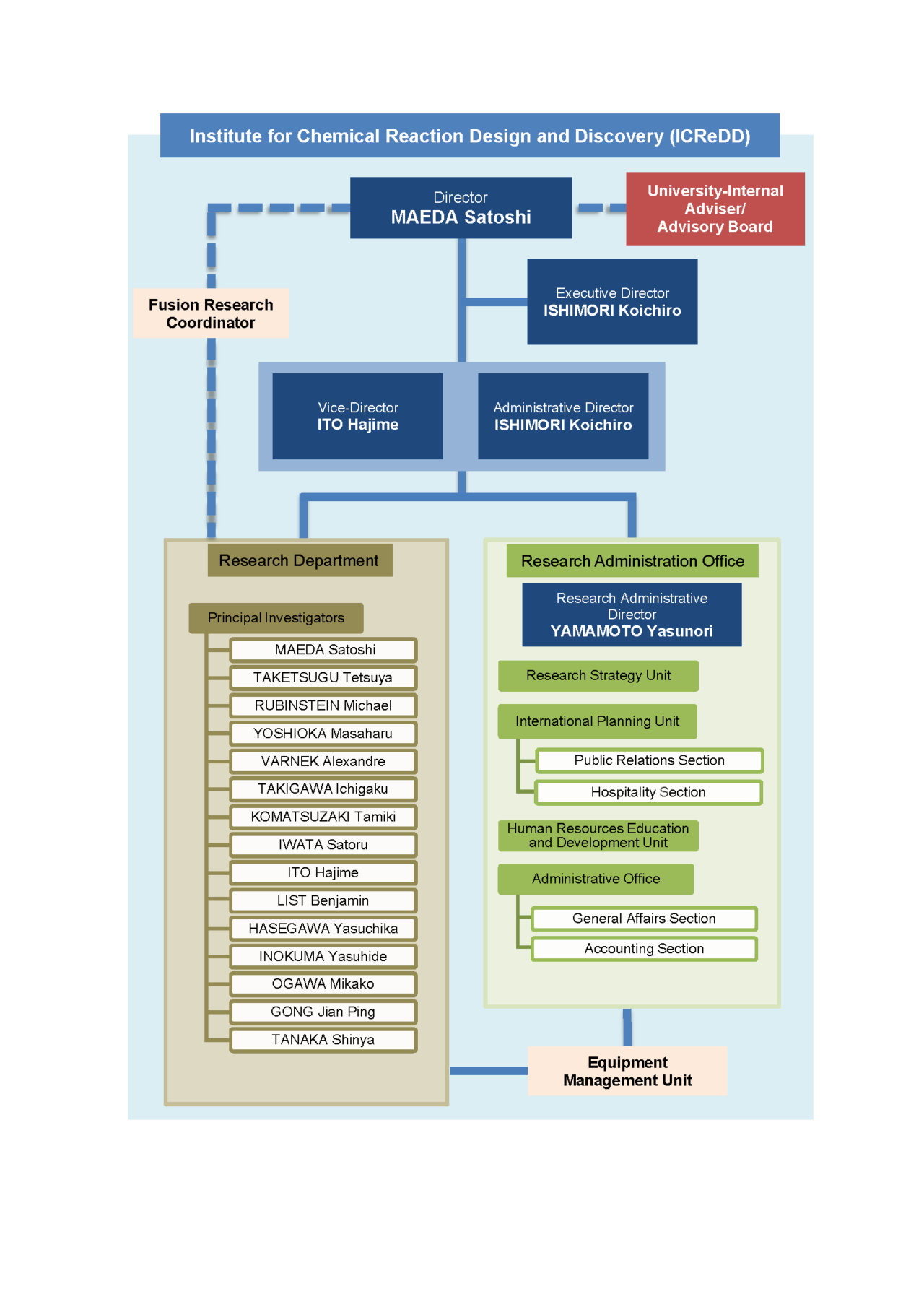Director’s Message

The development of new chemical reactions is intrinsically entangled with the prosperity of humanity and the preservation of the environment. A recent example of such transformative chemical reactions with profound impact is cross-coupling reactions, the discovery of which was awarded with the 2010 Nobel Prize in Chemistry. These reactions are used to produce approximately 20% of all medicinal reagents, and almost all liquid crystalline and organic electroluminescent materials. The industrial use of these chemical reactions contributes ~60 trillion yen per annum to the global economy. The development of new chemical reactions thus significantly affects the evolution of society.
However, the currently used methods for the design and development of bespoke chemical reactions is highly inefficient. Usually, these methods are based on trial and error, which is not only very laborious and time-consuming, but the discovery of truly innovative reactions is relatively rare. As the development and implementation of new chemical reactions often takes decades in reality, fundamentally new scientific approaches are required.
The goal of this initiative is to establish the scientific field of “Chemical Reaction Design and Discovery” (CReDD), a key technology of which that enables such calculations is the “Artificial Force Induced Reaction” (AFIR) method developed by me. CReDD uses the AFIR method to calculate chemical reaction-path networks, and applies concepts of information science in order to extract meaningful information for experiments, thus narrowing down optimal experimental conditions. This approach enables “pinpointing” promising experiments, which should considerably shorten the time required to develop chemical reactions. In addition, information science provides a feedback loop, in which data obtained by the experimental scientists is circulated back to the computational scientists; the synergetic effects from the combination of three fields should lead to the improvement and refinement of CReDD.
The ICReDD slogan “Revolutionize Chemical Reaction Design and Discovery” expresses our vision to renew the way chemical reactions are developed by fusing computational science, information science, and experimental science to solve current and future human problems. We will also contribute to the creation of a prosperous future society by forming open bases around the world and spreading our results throughout the world.
Introduction
The Institute for Chemical Reaction Design and Discovery (ICReDD)
In-depth understanding and efficient development of chemical reactions through the interdisciplinary research of computational science, information science, and experimental science.

Research Attitude at ICReDD
ICReDD is the Institute for Chemical Reaction Design and Discovery.
Chemical reactions are a central process in nature. Controlling them has always been of utmost significance to sustaining human society, and it is only becoming more important the more highly engineered our environment and culture becomes. The mission of ICReDD is to not leave the discovery and design of chemical reactions to serendipity or experience-guided intuition, but to enable humanity to purposefully craft chemical reactions to any design.
The purposeful design of chemical reactions requires cross-sectional collaborations at every step. The researchers from different disciplines combine their strength to take full control over chemical reactions.
Read more about the ground-breaking research done by our researchers on our Members pages. We also regularly publish summaries of our research hot topics on the Research Topics page.
About WPI
The World Premier International Research Center Initiative (WPI) was launched in 2007 by the Ministry of Education, Culture, Sports, Science and Technology (MEXT) in a drive to build within Japan “globally visible” research centers that boast a very high research standard and outstanding research environment, sufficiently attractive to prompt frontline researchers from around the world to want to work in them.
ICReDD is one of the 18 centers, established in October 2018 at Hokkaido University in Hokkaido. We are committed to upholding the ideals of WPI and contribute to international society by sharing our techniques with universities and partners world-wide.
“The four priorities of WPI projects are top-quality science, interdisciplinarity, globalization, and the reform of the research system.”
Organization and Facilities
Organization
ICReDD is led by the Center Director Satoshi Maeda, whose development of the AFIR method is the cornerstone for our ability to predict the course of chemical reactions. His ten-year appointment is meant to provide a long-term strategy for the successful development of the research center. He is assisted in his tasks by the Vice-Director and the Administrative Director.
The research is conducted by 15 Principal Investigators and their teams without further subdivision into sections, units, or fields, to enable flexible and integrated collaborations. Three of our PIs are co-appointed at overseas universities to increase our international outlook. In the Administrative Office, the Research Strategy Unit and the Management Planning Unit provide full support to the ICReDD researchers with the aim of maintaining a fertile research environment.
Hospitality System
ICReDD offers a very international research atmosphere. Around half of our researchers are from outside of Japan, and the working language is English.
To support our international researchers with their daily life in Japan, we are running a hospitality system that helps with settling in and living your life in Sapporo, including dealing with all the red tape around registration procedures. In addition, Hokkaido University offers free Japanese language classes at all levels, as well as various seminars on different aspects of living in Japan (e.g., Japanese business manners, skills for presenting to Japanese audiences, etc.).
Research Support
In order to enable researchers to work from the get-go, we provide start-up research funds to externally hired faculty members. Furthermore, to promote interdisciplinary research, we provide funding for priority research projects. We will also give guidance in applying for external funding, to help the newly hired researchers achieve outstanding results during their tenure, and to become prime candidates for faculty and postdoctoral positions at other international research institutions.
Newly Appointed Faculty Start-up Support
Interdisciplinary Research Start-up Support
ICReDD Building
The ICReDD building, newly constructed in February 2023, is a research building with a unique design based on ICReDD’s research workflow and energy savings achieved by low-cost, general-purpose techniques.
Click here for more details.
Gallery
Taking Full Control over Chemical Reactions: Introducing ICReDD
ICReDD Lab Tour
Introducing ICReDD Building



>> View more photos


